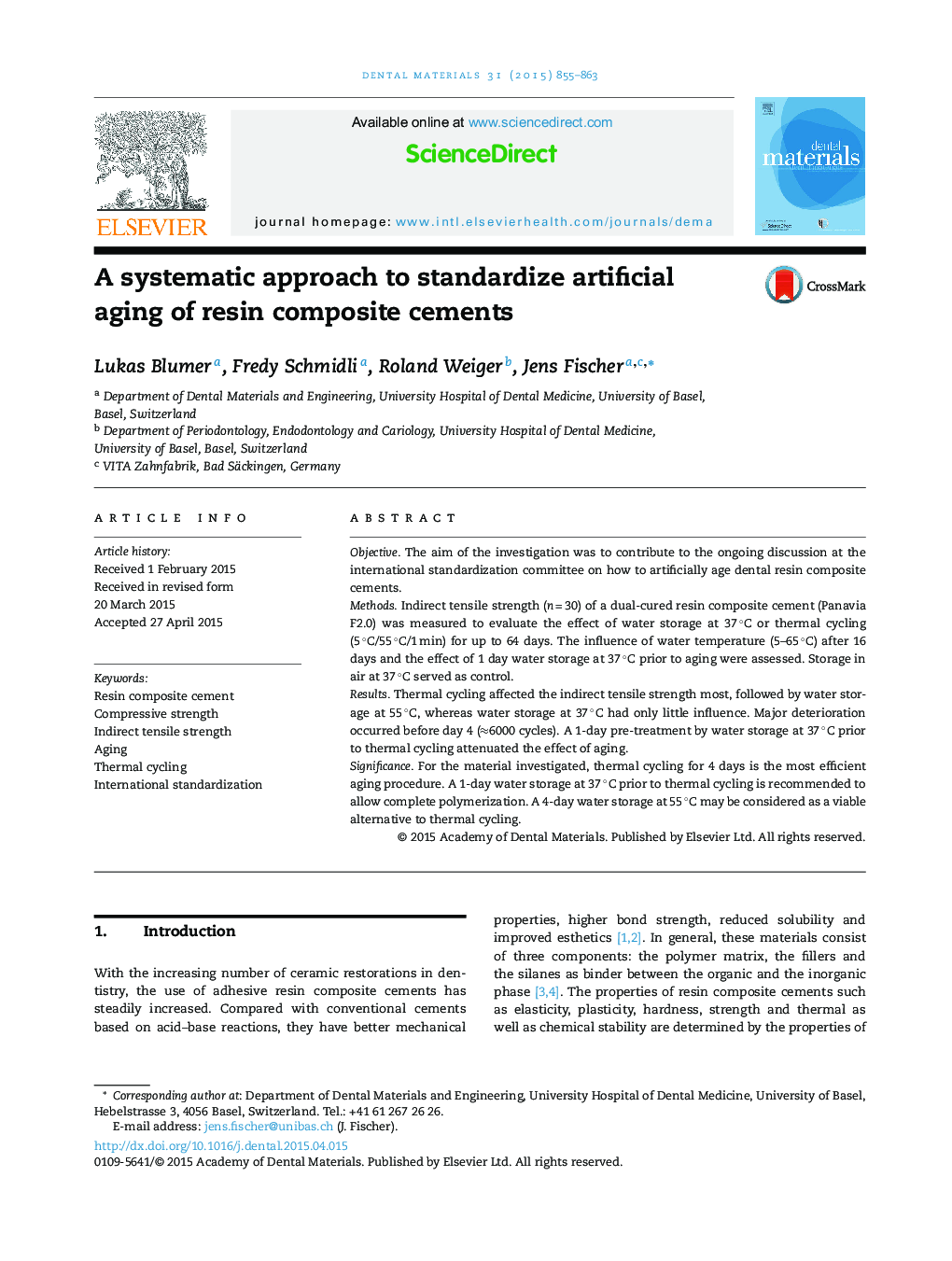| Article ID | Journal | Published Year | Pages | File Type |
|---|---|---|---|---|
| 1420637 | Dental Materials | 2015 | 9 Pages |
•Indirect tensile test is appropriate to assess the influence of artificial aging on resin composite cements.•Dual-cured specimens show less variance of strength values than self-cured specimens.•Thermal cycling (5 °C/55 °C, 1 min) is the most efficient aging procedure.•Water storage at 37 °C for 1 day should be performed prior to thermal cycling.•Water storage at 55 °C might be considered as an economical aging procedure.
ObjectiveThe aim of the investigation was to contribute to the ongoing discussion at the international standardization committee on how to artificially age dental resin composite cements.MethodsIndirect tensile strength (n = 30) of a dual-cured resin composite cement (Panavia F2.0) was measured to evaluate the effect of water storage at 37 °C or thermal cycling (5 °C/55 °C/1 min) for up to 64 days. The influence of water temperature (5–65 °C) after 16 days and the effect of 1 day water storage at 37 °C prior to aging were assessed. Storage in air at 37 °C served as control.ResultsThermal cycling affected the indirect tensile strength most, followed by water storage at 55 °C, whereas water storage at 37 °C had only little influence. Major deterioration occurred before day 4 (≈6000 cycles). A 1-day pre-treatment by water storage at 37 °C prior to thermal cycling attenuated the effect of aging.SignificanceFor the material investigated, thermal cycling for 4 days is the most efficient aging procedure. A 1-day water storage at 37 °C prior to thermal cycling is recommended to allow complete polymerization. A 4-day water storage at 55 °C may be considered as a viable alternative to thermal cycling.
